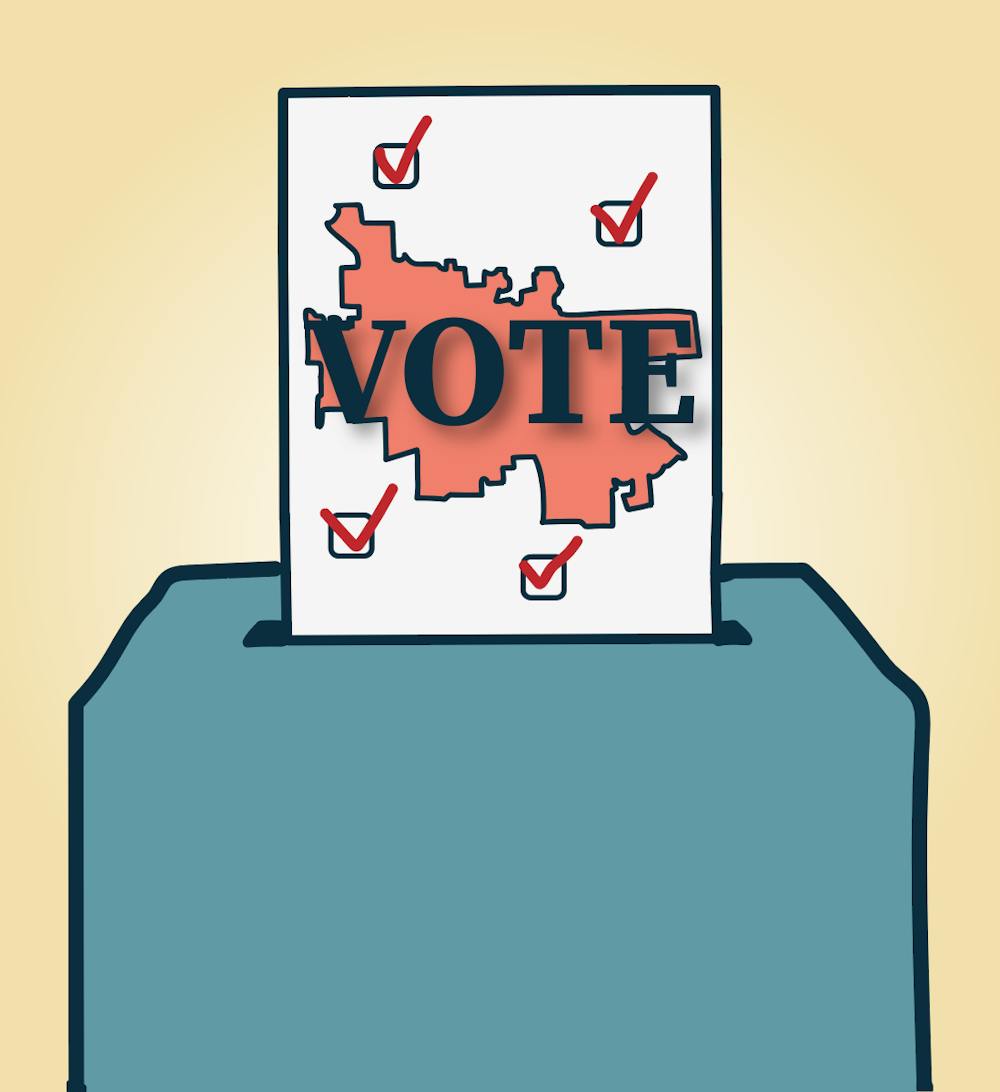Tucked away in the back corner of the Center for Student Engagement, Activities and Leadership in Armstrong Student Center is the Wilks Institute for Leadership and Service headquarters.
Posters line the walls: “I am Woman; Watch Me Vote,” “Dissent is Patriotic” and “Protect Civil Liberties.” They speak to the students in the office as guiding messages for their work.
The office serves as the hub of civic action and leadership at Miami University.
Mollie Duffy, a junior public administration major, has spent the majority of her time here since she began working at the office second semester of her first year at Miami.
According to The Wilks Institute’s website, it serves as a nonpartisan center for “leadership education, civic engagement and service learning,” and focuses on “ethical leadership and advancing community priorities.” Its student employees are considered Wilks Fellows who work to promote democracy on campus and in the community.
“Wilks has been the backbone of my civic engagement career,” Duffy said. “It’s really cool to see how it started off as little passion, but now it’s turned into this whole, huge project.”
Duffy spearheads student activism in the community outside of Miami as well. In January, Duffy joined the League of Women Voters of Oxford (LWV), a nonpartisan group established in 1920.
“Everybody in that organization has been doing [the work] for decades,” Duffy said. “Their job in this post-retirement era is focusing on the news of how they can stay informed and how they can help their community, and that’s the beauty of it.”
LWV connects many Miami faculty and staff members to an outlet for civil discourse. Their members include Elizabeth Wardle, a professor and director of the Howe Writing Center who serves as the co-president of voter services for LWV.
“I wanted to do something,” Wardle said. “But, I didn’t want to do something partisan. I really wanted to do something that was much more about the bedrock of democracy.”
To prepare for November’s general election, LWV’s largest project was creating and distributing a Voter Information Guide. This guide features information on how to vote in Ohio, local election candidates and platforms, ballot initiatives and polling places.
“It matters that you believe in democracy and believe in voting for everyone who’s legally allowed to vote,” Wardle said. “It’s not like the Republicans or Democrats are trying to convince you of something. We just want you to know what’s happening so that you can make your own informed decision … especially right now when everything is so hyper-partisan.”
Enjoy what you're reading?
Signup for our newsletter
One of Wardle’s goals when she first joined the league was to increase the mobilization and involvement of Gen Z voters.
“I’m Gen X, and Gen X is sort of notoriously cynical about the world. And so we don’t typically join things,” Wardle said. “I thought we really need to get involved, and then we need the younger students … to get involved because you all are the ones that every decision that’s getting made really affects.”
LWV also conducts workshops on campus and in the community. In April 2023, LWV collaborated with The Wilks Institute to hold Action for Democracy Day, and in October, LWV hosted a Meet the Candidates Forum.
Both the LWV and The Wilks Institute look to promote political mobilization, the preservation of democracy and community-wide civic engagement — regardless of political identity.
“It’s a tipping point in our country in terms of whether or not we’re going to have the right to vote in free and fair elections, and that who we elect and the laws they make really matter,” Wardle said.
For students on campus, voting is just one way to get involved. Adeline Hatfield, a senior political science and educational studies double-major, said that local elections, like this November’s, are impactful at all levels.
“When it comes down to it, I think all politics are local,” Hatfield said. “I think this election really proves that to be true. It’s important to stay engaged with these issues because they really make an impact on our communities and our families and our futures.”
Hatfield said that while there are many ways to be civically engaged, voting is crucial.
“There are a lot of opportunities to get involved if you want to,” Hatfield said. “But the most important part is just making sure that you actually do vote and follow through.”




